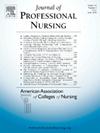Nursing and midwifery faculty experience of emergency remote teaching during Covid-19 pandemic: qualitative evidence synthesis
IF 2.9
3区 医学
Q1 NURSING
引用次数: 0
Abstract
Background
Many universities switched their pedagogical approach to teach remotely during Covid-19 pandemic for the first time, posing many challenges for faculty including technology infrastructure, lack of technical support, a changed teaching environment and more responsibility for supporting students to meet intended learning.
Aim
To Synthesise nursing and midwifery faculty experiences of online teaching during the Covid-19 pandemic.
Method
A systematic review of qualitative evidence was completed to systematically synthesise nursing and midwifery faculty experiences of online teaching during Covid-19 pandemic.
Results
Nine qualitative and three mixed-methods studies reporting on the experiences of 248 faculty were included in this ‘best fit’ framework using Chickering and Gamson's Seven Principles for Good Practice in Undergraduate Education. The importance of face-to-face interaction between faculty and students was highlighted for effective communication and interpersonal relationships. Clinical placement exposure was deemed imperative. Professional development and managerial support are paramount to effectively incorporate the use of online technologies to support nursing and midwifery education.
Conclusions
Clinical placement and practical skills training are essential to be delivered in-person. Face-to-face programmes could be enhanced using online components. Professional development and managerial support, together with collaboration among Higher Educational Institutions, Clinical Practice Partners and Regulatory Bodies is imperative for effective blended programmes.
Covid-19大流行期间护理和助产学院急诊远程教学经验:定性证据综合
在2019冠状病毒病大流行期间,许多大学首次将教学方法转变为远程教学,这给教师带来了许多挑战,包括技术基础设施、缺乏技术支持、教学环境发生变化以及支持学生完成预期学习的更多责任。目的总结新冠肺炎疫情期间护理助产学院在线教学经验。方法通过系统评价定性证据,系统综合新冠肺炎大流行期间护理助产教师在线教学经验。结果9项定性研究和3项混合方法研究报告了248名教师的经验,这些研究采用了奇克林和盖姆森的本科教育良好实践的七项原则,被纳入了这个“最适合”的框架。教师和学生之间面对面的交流对于有效的沟通和人际关系非常重要。临床实习暴露被认为是必要的。专业发展和管理支持对于有效地结合使用在线技术来支持护理和助产教育至关重要。结论临床实习和实践技能培训是开展现场培训的重要环节。面对面课程可以通过使用在线组件来加强。专业发展和管理支持,以及高等教育机构、临床实践伙伴和监管机构之间的合作,对于有效的混合课程至关重要。
本文章由计算机程序翻译,如有差异,请以英文原文为准。
求助全文
约1分钟内获得全文
求助全文
来源期刊
CiteScore
4.80
自引率
8.00%
发文量
153
审稿时长
52 days
期刊介绍:
The Journal will accept articles that focus on baccalaureate and higher degree nursing education, educational research, policy related to education, and education and practice partnerships. Reports of original work, research, reviews, insightful descriptions, and policy papers focusing on baccalaureate and graduate nursing education will be published.

 求助内容:
求助内容: 应助结果提醒方式:
应助结果提醒方式:


